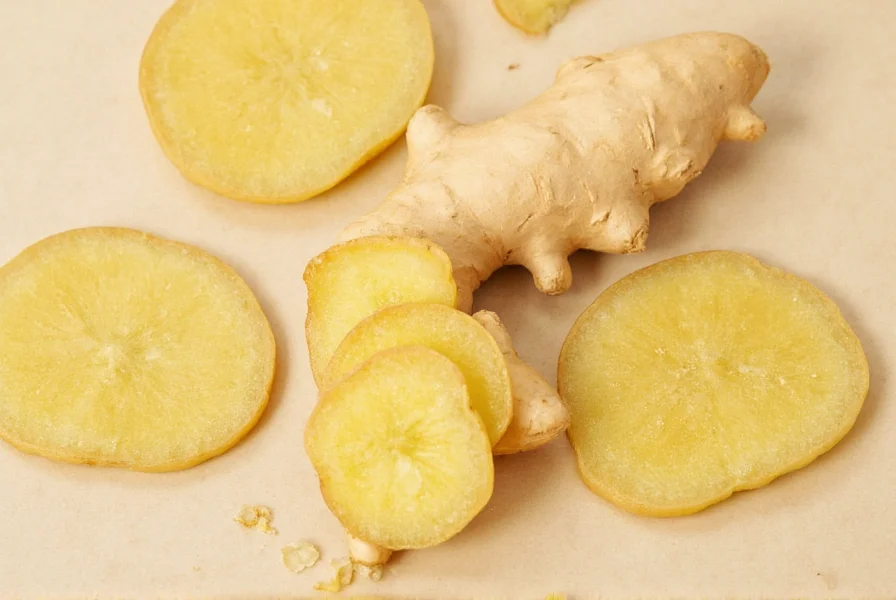Ginger has been used in traditional medicine systems for centuries, and modern research is increasingly examining its potential benefits for skin health. This versatile root contains over 400 bioactive compounds, with gingerol being the most studied for its therapeutic properties. Understanding how ginger interacts with skin requires examining both traditional uses and contemporary scientific evidence.
The Science Behind Ginger's Skin Benefits
Ginger's primary active compound, gingerol, demonstrates significant anti-inflammatory and antioxidant effects. These properties form the foundation of ginger's potential skincare benefits. Research published in the Journal of Medicinal Food indicates that ginger extract can inhibit inflammatory pathways in skin cells, potentially reducing redness and irritation associated with conditions like eczema and psoriasis.
Additionally, ginger contains zingerone and shogaols, compounds that contribute to its antioxidant capacity. These substances help neutralize free radicals that cause premature skin aging. A 2020 study in Dermatology and Therapy found that topical application of ginger extract increased skin's resistance to oxidative stress in test subjects.

Documented Skin Benefits of Ginger
Scientific research has identified several potential skin benefits associated with ginger use:
| Skin Benefit | Scientific Evidence | Recommended Application |
|---|---|---|
| Anti-inflammatory effects | Multiple studies show ginger extract reduces inflammatory markers in skin cells | Diluted ginger tea compresses for irritated skin |
| Antioxidant protection | Research indicates ginger increases skin's antioxidant enzyme activity | Topical serums containing ginger extract |
| Acne management | Preliminary studies suggest antibacterial properties against P. acnes | Diluted ginger toner for oily skin types |
| Wound healing | Animal studies show accelerated wound closure with ginger application | Very diluted ginger extract on healing wounds |
How to Use Ginger for Skin Care
When incorporating ginger into your skincare routine, proper preparation and application methods are crucial for both effectiveness and safety. The most common ginger for acne treatment approaches involve creating diluted topical applications.
Safe Application Methods
Raw ginger contains potent compounds that can irritate skin if used undiluted. Always perform a patch test 24 hours before full application. For most skin types, a safe concentration is 1 part ginger juice to 3-4 parts carrier liquid (water, aloe vera, or honey). Never apply undiluted ginger directly to skin.
Effective Ginger Skincare Recipes
For those interested in how to use ginger for skin brightening, consider these evidence-based preparations:
- Ginger and honey mask: Mix 1 teaspoon freshly grated ginger with 2 teaspoons raw honey. Apply for 10-15 minutes before rinsing. This combination leverages ginger's anti-inflammatory properties with honey's moisturizing benefits.
- Ginger toner: Steep 1 inch of sliced ginger in 1 cup hot water for 30 minutes. Cool completely, strain, and store in a glass bottle. Use as a toner for oily or acne-prone skin.
- Ginger and turmeric spot treatment: Combine equal parts ginger juice and turmeric powder with enough yogurt to form a paste. Apply to inflamed areas for 10 minutes.
Scientific Evidence Review
While traditional use of ginger for skin conditions is well-documented, modern scientific research provides more nuanced insights. A comprehensive review in Phytotherapy Research (2022) analyzed 17 studies on ginger's dermatological applications. The review concluded that ginger shows "promising but preliminary" evidence for improving inflammatory skin conditions, with most human studies being small-scale or preliminary.
One notable clinical trial published in Clinical, Cosmetic and Investigational Dermatology followed 45 participants with mild to moderate acne. Those using a 2% ginger extract gel twice daily showed a 28% reduction in inflammatory lesions after 6 weeks compared to the control group's 12% reduction. While encouraging, researchers noted the need for larger, longer-term studies.
When evaluating ginger skin benefits scientific evidence, it's important to distinguish between in vitro studies, animal research, and human clinical trials. Most compelling evidence currently comes from laboratory and animal studies, with human evidence still developing.
Potential Side Effects and Precautions
Ginger is generally safe for topical use when properly diluted, but certain precautions are essential. Some individuals may experience skin irritation, redness, or burning sensations. Those with sensitive skin should use ginger at lower concentrations (1:5 or 1:6 ginger to carrier ratio).
Avoid using ginger products before sun exposure, as some compounds may increase photosensitivity. Never apply ginger to broken skin or open wounds without medical consultation. Individuals with known ginger allergies or those using blood-thinning medications should consult a healthcare provider before topical ginger use.
Ginger in Context: Natural Skincare Comparison
When considering ginger and honey for skin versus other natural remedies, ginger offers unique benefits but isn't universally superior. Compared to turmeric, ginger has stronger anti-inflammatory properties but less evidence for hyperpigmentation reduction. Against aloe vera, ginger provides more antioxidant protection but less immediate soothing relief.
The most effective natural skincare approaches often combine complementary ingredients. For example, ginger's anti-inflammatory properties work synergistically with green tea's antioxidant effects or honey's antimicrobial benefits. This holistic approach aligns with current understanding of natural remedies with ginger for skin care.
Practical Considerations for Daily Use
For those exploring ginger face mask recipe for glowing skin, consistency matters more than intensity. Using properly diluted ginger preparations 2-3 times weekly typically yields better results than daily high-concentration applications. Fresh ginger generally contains more active compounds than dried, but dried ginger powder offers more consistent potency.
Store prepared ginger skincare products in the refrigerator and use within 3-4 days to maintain potency and prevent bacterial growth. Always use organic ginger when possible to minimize pesticide exposure on your skin.











 浙公网安备
33010002000092号
浙公网安备
33010002000092号 浙B2-20120091-4
浙B2-20120091-4